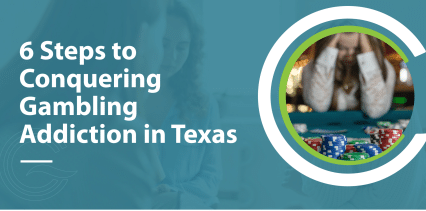Sex and gambling, often considered separate disorders, are both are related to obsessive-compulsive disorder (OCD) and can intertwine in a dangerous cycle of addiction. Both activities stimulate the brain’s reward center, releasing dopamine, a neurotransmitter associated with pleasure and reward. This shared neurobiological mechanism can lead to a heightened risk of developing both sex and gambling addictions.
The Connection Between Sex and Gambling Addiction
The link between sex and gambling addiction can manifest in several ways:
- Escapism: Both sex and gambling can be used as escape mechanisms to avoid stress, anxiety, or boredom.Engaging in these activities can provide temporary relief from negative emotions, leading to a compulsive cycle.
- Risk-Taking Behavior: Both sex and gambling are often associated with risk-taking behaviors. Individuals with these addictions may seek out increasingly risky and dangerous experiences to achieve a heightened sense of excitement.
- Impulsivity: Impulsivity is a common trait among individuals with sex and gambling addictions. They may struggle to control their urges and make impulsive decisions, leading to negative consequences.
- Social Isolation: Both addictions can lead to social isolation, as individuals may neglect relationships and prioritize their addictive behaviors.
The Cycle of Addiction
The relationship between sex and gambling addiction can create a vicious cycle. For example, individuals with sex addiction may turn to gambling to cope with feelings of shame, guilt, or rejection. Conversely, individuals with gambling addiction may engage in risky sexual behaviors to alleviate stress and anxiety caused by financial problems or relationship difficulties, making it crucial to seek out both sex and gambling addiction treatment.

The Impact of Combined Addictions
When sex and gambling addictions coexist, the consequences can be severe. These combined addictions can lead to:
- Financial Ruin: Excessive spending on online subscriptions, adult entertainment, and gambling can deplete financial resources.
- Relationship Breakdown: Addictive behaviors can damage relationships with partners, family, and friends.
- Legal Trouble: Engaging in risky sexual behaviors or illegal gambling activities can lead to legal consequences.
- Health Problems: Both sex and gambling addictionscan contribute to physical and mental health problems, such as sexually transmitted infections, substance abuse, and depression.
Seeking Help
If you or someone you know is struggling with sex and gambling addiction, it’s important to seek professional sex and gambling addiction help. Treatment for these dual addictions often involves a combination of therapies, including:
- Cognitive Behavioral Therapy (CBT): This therapy helps individuals identify and change negative thought patterns and behaviors.
- Sex Addiction Therapy: This therapy focuses on addressing underlying issues related to sex addiction, such as trauma, low self-esteem, and relationship problems.
- Medication: In some cases, medication may be prescribed to treat underlying mental health conditions, such as depression or anxiety.
By seeking professional help and engaging in effective sex and gambling addiction treatment, individuals with sex and gambling addictions can break free from the cycle of addiction and rebuild their lives.
Remember, it’s never too late to seek help. If you or someone you know is struggling with addiction, please reach out to a mental health professional or a helpline.
Don’t let shame hold you back from seeking out sex and gambling addiction help. Reach out to us at the Gambling Clinic of Texas to schedule an appointment or take our self-assessment to help you get started.





















